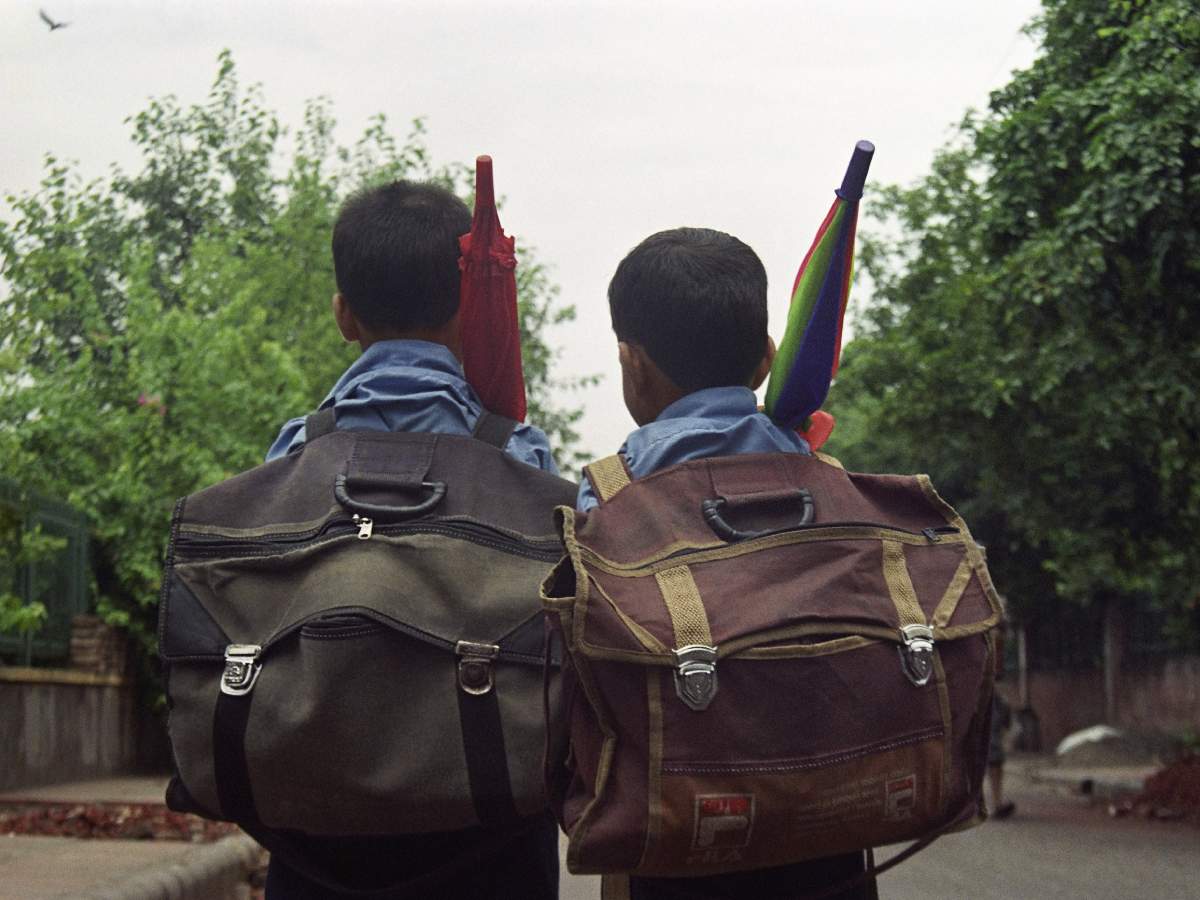
PHOTO: GETTY
Three days after the Directorate of Education issued guidelines for 10 “bagless” days each month across government and private schools in the national capital, health and education experts have praised the initiative. They believe the approach promises benefits for students’ physical and mental well-being.
Alka Kapur, Principal of Modern Public School in Shalimar Bagh, outlined the advantages and potential concerns of the initiative, intended to improve children’s physical and mental health.
Discussing the policy’s benefits, Kapur remarked, “The concept holds promise for both physical and mental well-being. By reducing the weight students carry, there could be a positive impact on their energy levels and focus.”
She noted that bagless days could encourage schools to adopt innovative learning activities like hands-on experiments or field trips, giving students a refreshing change from traditional routines.
Kapur also highlighted the physical health impacts of heavy school bags. “Excessive weight can lead to back, shoulder, and neck strain, and even postural issues. While bagless days provide relief, addressing the underlying issue is essential.”
Suggesting alternatives to school bags, Kapur proposed using digital platforms for notes and assignments, providing individual lockers, and setting up subject-specific resource areas within schools to reduce students’ load. She recommended that a child’s bag should weigh no more than 10-15% of their body weight to prevent strain.
Kapur acknowledged possible drawbacks as well. “One challenge could be students readjusting to regular classroom routines after bagless days,” she explained. “To ensure continued access to essential materials and resources, careful planning and gradual transitions are necessary.”
Regarding the policy’s impact on students’ mental health and academic performance, Kapur expressed optimism. “A reduction in physical burden could ease stress, fostering a more positive learning environment. Additionally, experiential learning can boost student engagement and understanding.” However, she emphasised the need for effective implementation and access to adequate resources.
When asked if she would support a 10-day ban on school bags, Kapur responded with a balanced view. While recognising the potential benefits, she stressed the importance of maintaining traditional learning practices, particularly in literacy. “To support literacy development, schools could introduce reading clubs or writing workshops to complement the benefits of bagless days,” she suggested.
Health expert
Dr Tushar Tayal, Consultant in Internal Medicine at CK Birla Hospital, provided additional insights into the physical implications of heavy school bags and the potential benefits of a bag-free policy.
According to Tayal, carrying heavy school bags can adversely impact children’s physical development. “The weight of school bags can lead to poor posture and spinal misalignment,” he explained, noting that children’s growing musculoskeletal systems are particularly susceptible to strain from excessive weight, potentially leading to chronic issues.
Tayal cited common health problems caused by heavy bags, such as back, shoulder, and neck pain, muscle strain, fatigue, and conditions like scoliosis or kyphosis. He added that fatigue resulting from these issues could affect children’s concentration and mood, hindering their academic performance.
“A periodic break from carrying school bags can help reduce cumulative stress on the back and shoulders,” he noted, adding that this would allow children’s bodies time to recover, thus preventing chronic musculoskeletal issues, especially during critical growth phases.
To further support children’s physical health, Tayal suggested core and shoulder-strengthening exercises, including planks, shoulder shrugs, and stretches. “Regular stretching and proper backpack use, such as wearing both straps and distributing weight evenly, can help prevent strain,” he advised.
Tayal pointed out that easing physical strain could also improve children’s mental well-being by enhancing comfort and focus. However, he noted that some students might feel anxious about the inconsistency in routines, while others could benefit from a more relaxed environment.
Also Read: Mothers step up as air pollution endangers children’s health
Tayal concluded that bag-free days could heighten awareness of the health impacts of heavy school bags. He suggested that schools educate students on proper backpack ergonomics and consider lightweight materials or digital options to reduce strain effectively.
While acknowledging the benefits, Tayal cautioned that children might view bag-free days as a break from academic responsibilities, potentially affecting their sense of routine. “The daily practice of organising school bags instils responsibility and discipline,” he observed.
Tayal expressed his support for a 10-day ban on school bags, with modifications. “I would endorse the policy if it includes digital resources or lockers, ensuring students stay organised and prepared,” he said, underscoring the importance of maintaining learning continuity.
Delhi High Court grants bail to 26-year-old Thar driver accused of mowing down two in…
Two Rohini men arrested for fatally stabbing one person and injuring another during a robbery…
Rekha Gupta marks one year in office, highlighting welfare schemes, infrastructure work, and governance reforms…
Four men, including the alleged mastermind, were arrested for luring a shopper with fake cash…
A neighbour was arrested after allegedly luring, raping, and strangling a three-year-old girl in Gurugram,…
Pracheen Kala Kendra’s Quarterly Baithak will feature Hindustani vocal by Rashmi Chaudhary and a tabla…